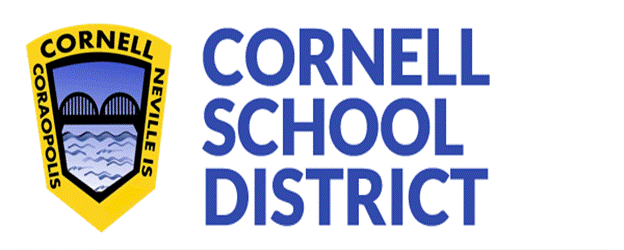
Cornell superintendent Aaron Thomas looks around a room in his school and sees chairs. Lots and lots of chairs.
This room used to be a planetarium before eventually turning into a storage room for chairs and cabinets and various relics of years past. Soon enough, it will serve a new purpose as the Cornell Wellness Room, a mental health hub for the district.
The room will house a behavioral health specialist and behavioral health technician from Wesley Family Services, as well as the district’s counselors. It will be one of two student wellness rooms at the school. One will be used for high school students and the other for elementary students. The district will also be adding a staff wellness room.
All three additions are funded by the Project SEEKS SES grant, a partnership between the Allegheny Intermediate Unit (AIU) and the Allegheny County Health Department (ACHD), 10 school districts and three universities to explore a variety of resources to address trauma, behavior and mental health supports for students and staff.
“They can run small group therapy, they can run school-based therapy, we can run family-based therapy there. And we’ll set up a schedule, especially if a student needs to go in there and chill out, relax and talk to somebody,” Thomas said of the student wellness rooms. “We have to be very strategic with it. It’s not a place where a teacher sends a student that’s not working hard or not doing an assignment.”
Thomas has long been thinking of how he could increase the mental health support in the district. There’s been an increased need since students returned to in person learning after the COVID-19 pandemic, Thomas said.
“We – like many other districts — have seen a dramatic increase in mental health issues with our students since COVID,” Thomas said.
“Being a small district, we’re limited with our resources and we’re limited with our personnel. We don’t have social workers, unfortunately. We don’t have a school psychologist. So it’s been on our radar to increase staffing in these areas.”
Going forward, Thomas sees the wellness rooms as the next step of sustainable, higher-level mental health support in the district. Staying carefully attuned to students’ mental health needs is incredibly important, Thomas said, as unchecked issues can be a barrier to learning for the student and their classmates.
“What people who don’t work in school districts don’t realize is if you have these incidents in classrooms, it has an impact on the other students as well, as far as being barriers for them,” Thomas said.
“And we see that sometimes when certain things happen, you can see how it impacts the whole classroom. I know that not everyone of our students needs these resources, but I think enough do that you’ll see the ripple effect on the other students.”
Given Cornell’s role as the community hub in the small surrounding community, Thomas sees these supports as having an impact outside of the school, too. In the process, the district will strengthen its relationships with families, students and community partners, helping build more systematic levels of support.
But yet, Thomas said the student wellness rooms can not have their best intended effect without proper staff wellness, too. That’s why Thomas has decided to repurpose another room in the district for that reason.
“Exploring all these different options on what we would do with the Project SEEKS money, we’ve heard time and time again that it starts with your staff. And one of the biggest suggestions was to model it for your staff first,” Thomas said.
“So I think if our staff members have an area that they can go to to work, collect themselves or have a mindful moment or whatever it is, they would have a better understanding of what the students are expected to go through as well.”
Thomas prides himself on his ability to stay carefully attuned to his teacher’s needs. As a former teacher and principal in the district himself, Thomas has been embedded at Cornell for quite a while. Over that time — even as his role has changed — Thomas has remained the same person: a kind, accessible leader who never silos himself away from the rest of his staff.
“We have the lowest teacher mobility rate in the region. When people are hired here, they’re here pretty much forever. Being a small district, you get to know them so well,” Thomas said.
“You get nervous of teacher burnout, and you just want to make sure that teachers feel supported and they’re cared about when they’re here. Because if they have some feelings, I think it will relay to the kids.”
